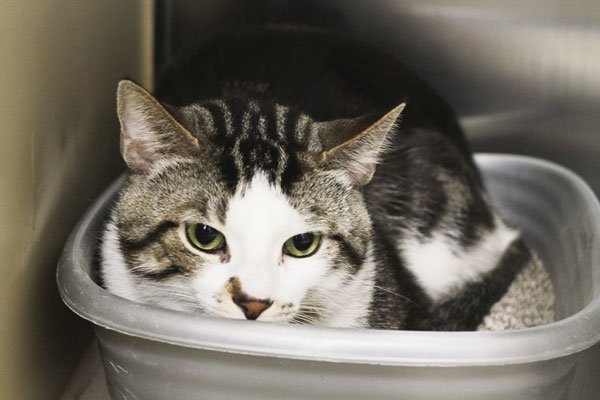
“If we’re going to help animals, we have to be able to help their people as well.”
– Sandra Anderson, Saskatchewan SPCA
Jo-Anne Dusel has worked with too many victims of domestic violence who wouldn’t escape because they were fearful of their abuser harming their pets.
“I spoke to several, quite a few individuals who were describing terribly abusive situations, but could not be budged. They would not leave if they were going to leave their pet,” she said.
“Unfortunately I’ve also worked with victims who had their pets killed in front of them.”
Dusel is the executive director of the Provincial Association of Transition Houses and Services of Saskatchewan (PATHS).
PATHS is working with the Saskatchewan SPCA and Saskatchewan Towards Offering Partnership Solutions (STOPS) to Violence to raise money with a 50/50 lottery.
It has an estimated payout of $1,000. The draw date is October 1.
Tickets for the lottery cost $10 for one ticket, $20 for four, $50 for 25 and $100 for 100.
The proceeds go towards updating a domestic violence guide to include the link between abused pets and abused people.
Currently, the Getting Out guide includes how to recognize abuse, what to take with you when you go to a shelter and laws around child custody and access.
Dusel said the money from the lottery will pay for printing and distributing the updated guide to agencies such as shelters and family violence counsellors.
As Dusel explained, it’s often a tactic of someone who’s abusive to threaten the victim with their companion animal.
“The victim themselves would probably rather be hurt themselves than having their beloved pet injured or killed,” she said.
Currently, she explained, Saskatchewan does not have any women’s shelters that allow pets on site—so victims stay in abusive situations.
PATHS is partnering with animal welfare organizations so when someone escapes to a shelter, the shelter staff can tell them where their pet can be kept safe.
Sandra Anderson, program director for the Saskatchewan SPCA, said it may sound unusual that they’re working to reduce domestic violence of people.
“We feel it’s a natural fit. If we’re going to help animals, we have to be able to help their people as well,” said Anderson.
She said victims of domestic violence are left in uncomfortable situations with few animal safekeeping programs in the province.
Saskatchewan has the highest rate of domestic violence in Canada.
According to the Saskatchewan Prevention Institute, one in four women and one in seven men have experienced violence in their relationships.
“It’s not something that we are proud of, but this is one way that we are dealing with the incidents of violence and the impact it has on both people and animals,” said Anderson.
Dusel said the updated Getting Out guide will be available as early as September.
If you are experiencing abuse, visit 211 Saskatchewan or PATH’s website for resources and contact information for agencies in your area. PATHS and SaskTel provide contact information for abuse help lines in every phone book.

